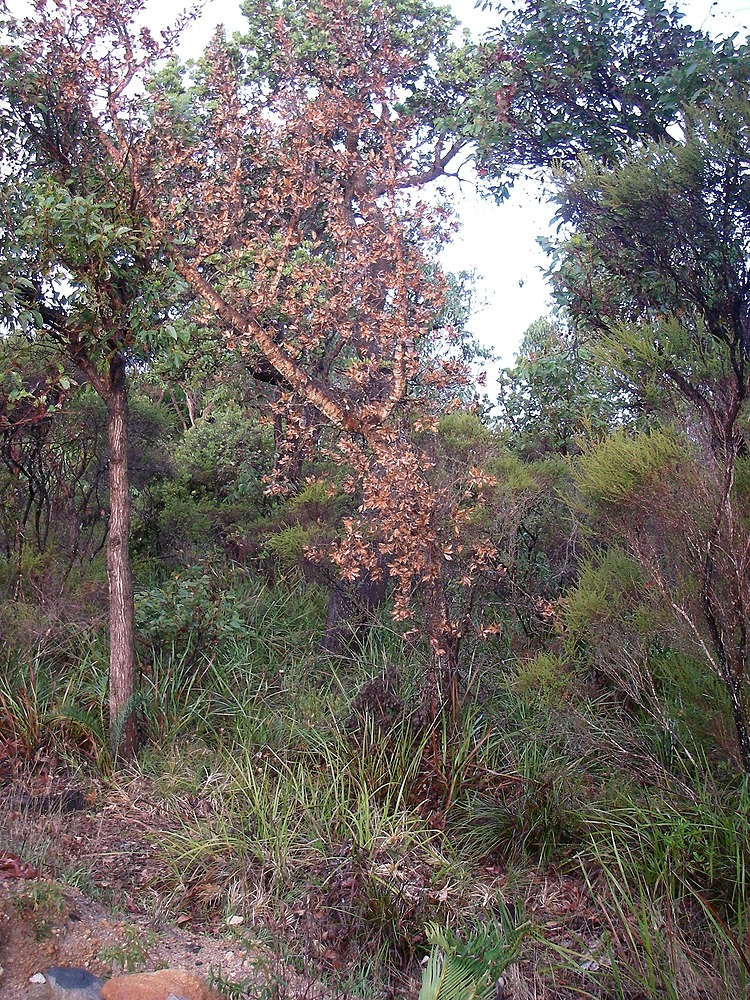Dealing With Dieback Workshop
Event description
Learn about dieback – and how to protect your property and our local environment by stopping its spread – at this Nature Conservation Margaret River Region (NCMRR) workshop and field day for local landholders.
Dieback is a highly destructive plant disease that can disrupt entire ecosystems, kill plants, impact biodiversity and be expensive for industry, government and landowners to mitigate. Scientifically known as phytophthora and classified as a water mould, dieback is a huge problem in the South-West.
But NCMRR is fighting back with a workshop on Friday, November 4 at 10am to educate landholders and pass on some simple but effective tips in identifying and controlling dieback. Dieback expert Jeremy Spencer from Great Southern Bio Logic will lead the workshop, which is part of Nature Conservation’s For Nature Landholder Stewardship Program.
It will cover the basics of dieback including background info, indicator species, identifying dieback, other factors impacting tree decline, sampling, hygiene, property planning and options for the future.
“Dieback could be in your garden killing your roses, it could be in the bush around your property or holiday home, or could be at your favourite picnic spot or walking trail,” says NCMRR’s Peta Lierich. “It’s an important issue for home gardeners, landscapers, new home builders, off road vehicle enthusiasts, bushwalkers and anyone who uses our bush or national parks.”
Mr Spencer said when dieback spreads to bushland, it kills many plants and causes a permanent decline in the diversity of the bushland. It can also change the composition of the bushland by increasing the number of grasses and reducing shrubs. Native animals are also reduced in numbers or eliminated. However, bushland infested with phytophthora still has important conservation values. It contains remnant vegetation that provides habitat for many native animal species and protects the landscape from salinity and erosion. Therefore, it is important to retain and maintain remnant bushland even when it is affected by dieback.
“The workshop will be in the field and will cover basic disease biology and how it impacts flora, fauna and the broader environmental communities. We will look at property management strategies and hygiene actions that will help to reduce the risk of introducing the disease and spreading the disease if it is already there,” Mr Spencer said. “Then we will look at some dieback and go through the process of ID, sample collection and implementing hygiene across an area.”
The location will be confirmed closer to the date, with participants urged to bring closed shoes, drinking bottle, sun and weather protection, and a folding chair. Dieback treatment kits will also be available to borrow.
The For Nature Landholder Stewardship Program is free to register for and comes with loads of benefits, like grants for conservation work at your place and free equipment hire. Find out more at: https://www.natureconservation.org.au/for-nature/

Tickets for good, not greed Humanitix dedicates 100% of profits from booking fees to charity


